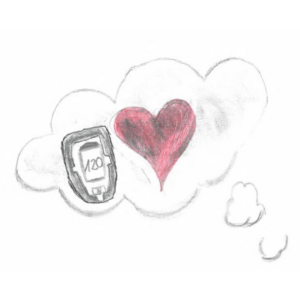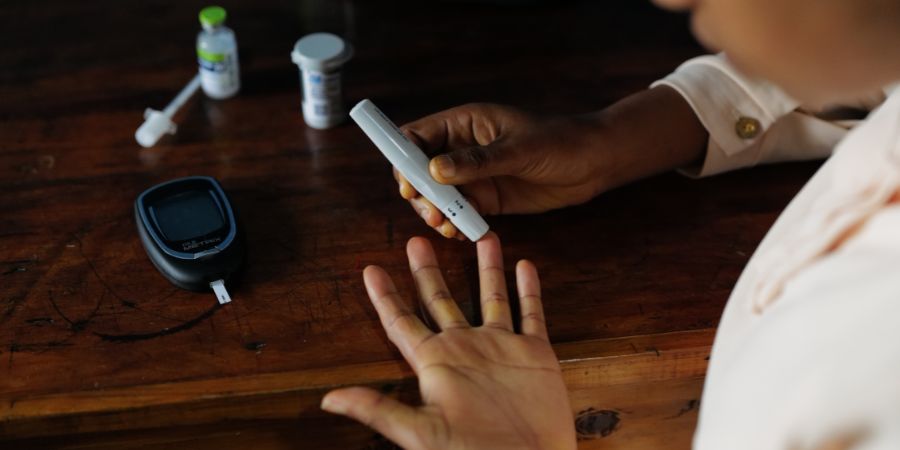Life for a Child’s reflections on a milestone achievement for global access to blood glucose meters and test strips have been published in The Lancet Diabetes and Endocrinology.
In October 2023, the World Health Organization (WHO) officially recognized the crucial importance of Self-Monitoring of Blood Glucose (SMBG) for people with insulin-treated diabetes, marking a milestone achievement. This recognition was the result of collaborative efforts by Life for a Child and FIND, advocating for SMBG inclusion on the Essential Diagnostics List. This news is opportune, aligning with WHO’s Global Diabetes coverage target of ensuring 100% access to affordable insulin and SMBG for people with type 1 diabetes by 2030.
This month, we published a commentary in Lancet Diabetes and Endocrinology, outlining this milestone and proposing strategies to ensure policy advancements translate into tangible improvements in under-resourced settings, where SMBG remains unaffordable for many.
A milestone achievement, but more work is needed
While the inclusion of SMBG in the EDL represents a significant advancement in addressing disparities, it serves as only the initial phase of a larger journey aimed at ensuring equitable and sustainable access for all individuals in need. To realize this objective, we propose the following actions to support tangible improvements in SMBG access for T1D communities in low- and middle-income countries:
- The WHO should provide guidance and support to national health systems and organisations working in diabetes care.
- Policymakers, organizations and individuals must embrace collaboration and advocate for the adoption of essential diagnostics lists at the national level.
- Health systems must establish robust monitoring mechanisms.
What steps are Life for a Child taking to bolster these achievements?
Capacity Building and Education: At Life for a Child, we recognize the pivotal role of education in empowering individuals to effectively utilize SMBG in type 1 diabetes (T1D) care. We provide continuous education and support to our local partners on SMBG and have an extensive range of educational resources for children, parents, and healthcare professionals, available in 24 languages.
Benchmarking: We believe in establishing robust monitoring mechanisms to track the adoption and impact of SMBG. Regular evaluation enables us to pinpoint areas for improvement and furnishes advocates with data to champion increased access to essential diabetes management tools and treatments. Through our support to local partners in data compilation, research endeavors, and participation in initiatives such as SWEET, we facilitate data collection, benchmarking, and evaluation.
Communication: We believe in the importance of disseminating high-level developments to a variety of stakeholders. Regarding the updated Essential Diagnostics List (EDL), we are encouraging our NGO partners an all diabetes centers and associations with connections to Ministries of Health to relay the WHO’s acknowledgment of the importance of meters and strips to decision-makers.
We see the addition of SMBG to the WHO’s Essential Diagnostics List as a significant milestone in global health for type 1 diabetes. While ensuring access to affordable SMBG won’t happen overnight, by uniting as a global community, each of us can contribute to realizing this shared vision together.
View our recent article published in The Lancet Diabetes & Endocrinology.
View the WHO news release detailing the addition of blood glucose monitoring tools.


Herbert from Bolivia underlines the importance of blood glucose monitoring in the artwork he submitted to the Life for a Child art competition.
Emma Klatman Global Policy and Advocacy Manager
Rachel Clayton Marketing and Communications Manager
